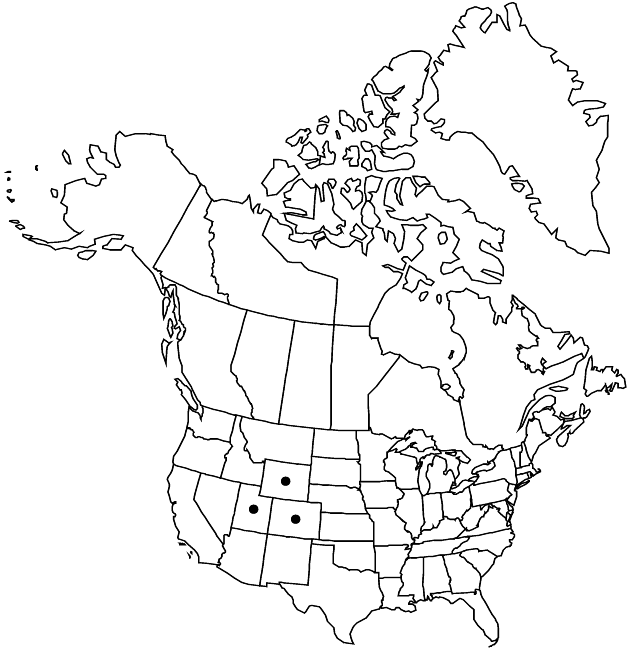Difference between revisions of "Pyrrocoma clementis var. clementis"
Treatment appears in FNA Volume 20. Treatment on page 416.
imported>Volume Importer |
imported>Volume Importer |
||
| Line 42: | Line 42: | ||
|publication year= | |publication year= | ||
|special status= | |special status= | ||
| − | |source xml=https:// | + | |source xml=https://bitbucket.org/aafc-mbb/fna-data-curation/src/2e0870ddd59836b60bcf96646a41e87ea5a5943a/coarse_grained_fna_xml/V19-20-21/V20_953.xml |
|tribe=Asteraceae tribe Astereae | |tribe=Asteraceae tribe Astereae | ||
|genus=Pyrrocoma | |genus=Pyrrocoma | ||
Latest revision as of 21:06, 5 November 2020
Plants 6–18(–40) cm. Stems decumbent to ascending. Leaves narrowly lanceolate, 50–140 × 9–16 mm, margins entire or slightly undulate. Involucres 20–34 mm wide. Phyllaries narrowly obovate, apices abruptly acute. Cypsela faces sericeous. 2n = 12.
Phenology: Flowering Jun–Sep.
Habitat: Meadows, open rocky slopes, limestone outcrops in shrub communities
Elevation: 2500–3800 m
Distribution

Colo., Utah, Wyo.
Discussion
R. A. Mayes (1976) suggested a relationship between var. clementis and Pyrrocoma crocea.
Selected References
None.
Lower Taxa
None.